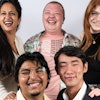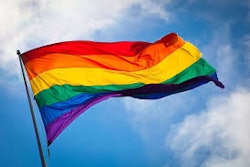People who identify as LGBTQ+ are nearly four times more likely than their heterosexual peers to experience violent victimization, including rape, sexual assault and aggravated or simple assault, according to a study by the Williams Institute at UCLA School of Law released last October.
Based on the 2017 National Crime Victimization Survey, LGBTQ+ individuals experienced 71.1 victimizations per 1,000 people, compared to 19.2 victimizations per 1,000 people for non-LGBTQ+ people. In addition, members of the LGBTQ+ community experienced higher rates of serious violence victimization in almost every type of violent crime except robbery.
“The findings point to the importance of policies and interventions to reduce victimization and the need to consider the unique susceptibility to violence and the high rates of crime experienced by LGBTQ+ people,” study author Ilan H. Meyer, distinguished senior scholar of public policy at the Williams Institute, said when the institute released the report.
In academia, researchers and leaders in LGBTQ+ studies are heeding the call for policy changes and reformative actions.
“I’m very much a scholar activist; I base myself in doing participatory action research — community engaged research,” says Dr. Justin T. Brown, executive director of the Center for LGBTQ Studies (CLAGS) at the City University of New York. “The work that we do always has some action-based purpose, so that we’re not doing a program or activity merely for the purpose of showcasing it but clearly trying to think through how it can be utilized for the improvement and betterment of our community.”
When he was appointed to the top post at CLAGS in 2017, Brown said he preferred a position that allowed him to maintain an active role in LGBTQ+ studies and its community.
Brown co-authored a qualitative study in 2018 examining Black women’s reluctance to adopt Pre-Exposure Prophylaxis (PrEP) despite having disproportionate rates of HIV. His 2017 dissertation “identified critical factors necessary for the development of asset-based, culturally-responsive, social justice-oriented interventions that could serve as new, alternative prevention strategies for Black/Latino gay/bisexual young men.”














